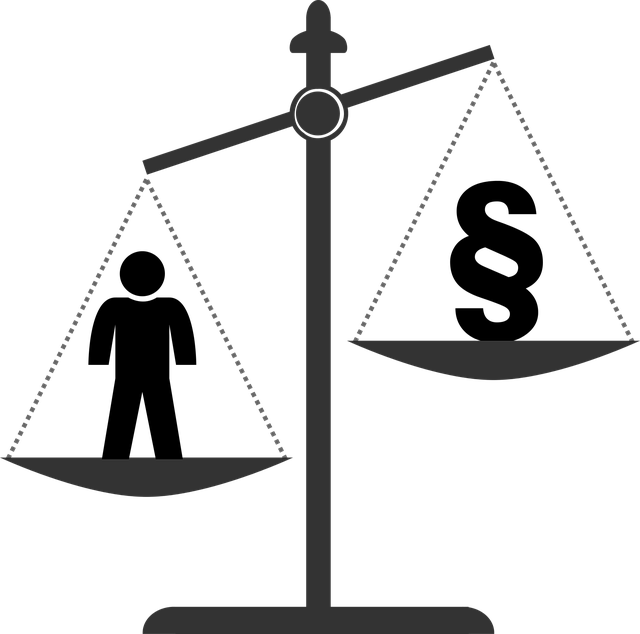Contempt obligations are legal duties to respect court processes, with civil and criminal implications. Legal enforcement mechanisms, including fines, imprisonment, and warrants, ensure compliance. Individuals facing charges can mount defenses challenging procedural errors or good-faith misunderstandings. These obligations play out in diverse scenarios, from family rights protection to environmental regulations, deterring contemptuous behavior.
Contempt obligations are a crucial aspect of legal systems, encompassing a range of behaviors deemed harmful or disrespectful to a court’s authority. Understanding these obligations is essential for both individuals and legal professionals. This article navigates the complexities of contempt, from its defining characteristics to legal enforcement mechanisms. We explore civil versus criminal offenses, defense strategies, real-world examples, and the broader implications for those entangled in such matters, emphasizing the critical role of courts in legal enforcement.
- Defining Contempt Obligations: Legal Basis & Scope
- Types of Contempt: Civil vs Criminal Offenses
- Legal Enforcement Mechanisms: Powers of Courts
- Defense Strategies: Challenging Contempt Charges
- Real-World Examples: Case Studies & Outcomes
Defining Contempt Obligations: Legal Basis & Scope

Contempt obligations refer to the legal requirements and responsibilities that individuals or entities must fulfill to avoid being held in contempt of court. The concept is rooted in the power of courts to ensure respect for their processes and orders. When someone fails to comply with a court’s order, they risk facing legal enforcement measures.
The scope of contempt obligations is broad, encompassing various actions or omissions that obstruct or undermine judicial proceedings. These obligations are based on statutes and case law, providing a framework for holding parties accountable. Legal enforcement mechanisms can include fines, imprisonment, or other sanctions to deter future violations. Understanding these obligations is crucial for all involved in legal processes to ensure smooth operations and the preservation of justice.
Types of Contempt: Civil vs Criminal Offenses

Contempt of court is a legal concept with distinct civil and criminal implications, each carrying its own set of obligations and penalties. Civil contempt involves actions that obstruct or undermine judicial proceedings, such as refusing to comply with a court order. This often occurs in situations where an individual fails to pay alimony, child support, or does not follow through on a settlement agreement. The focus here is on ensuring the court’s authority and restoring compliance with its orders, often resulting in fines or imprisonment until the contemnor abides by the court’s mandate.
In contrast, criminal contempt deals with actions intended to disrespect or insult the court itself, or willful disobedience of judicial decrees designed for the public good. This might include behaviors like open defiance during a trial, disrupting court proceedings, or refusing to recognize and obey a judge’s lawful commands. Criminal contempt is typically punished more severely, potentially leading to prison sentences and fines, as it is seen as a criminal offense against the state and its legal system. These distinctions are crucial in understanding the applicable legal enforcement mechanisms when dealing with cases of contempt.
Legal Enforcement Mechanisms: Powers of Courts

In the context of contempt obligations, legal enforcement mechanisms play a crucial role in ensuring compliance with court orders. Courts possess significant powers to enforce their decisions and maintain the integrity of the judicial process. These powers include the ability to issue warrants, impose fines, and even imprison individuals who fail to adhere to the specified requirements. The legal enforcement process is designed to be a structured and fair mechanism, allowing courts to address any non-compliance in a timely manner.
Judicial authority extends to monitoring and controlling parties involved in legal disputes, ensuring they fulfill their obligations as directed. This involves regular hearings, where the court assesses progress, identifies any issues, and takes appropriate action. Such actions can range from modifying orders to imposing stricter penalties for repeated or intentional contempt, emphasizing the court’s authority in upholding justice and resolving conflicts effectively.
Defense Strategies: Challenging Contempt Charges

When facing contempt charges, individuals accused can employ various defense strategies to challenge these allegations. One common approach involves questioning the legitimacy of the legal enforcement process itself. This may include arguments about procedural errors, such as inadequate notice or incorrect documentation, which could render the contempt charge invalid.
Additionally, defendants might argue that their actions were not intended to defy court orders or that they had a good-faith misunderstanding of the rules. Presenting evidence of reasonable efforts to comply or adhering to alternative interpretations of the court’s directives can be instrumental in these defenses. By focusing on the nuances of legal enforcement and individual intent, those accused can navigate the complexities of contempt charges more effectively.
Real-World Examples: Case Studies & Outcomes

In real-world applications, contempt obligations manifest in various scenarios, offering valuable case studies for understanding their impact and legalities. For instance, consider a situation where a non-custodial parent fails to adhere to visitation rights as per a court order, effectively denying the custodial parent their designated time with the child. Such actions can be deemed contumacious, leading to legal enforcement mechanisms. The courts may issue fines or even jail time to compel compliance, ensuring the parental rights and well-being of the child are upheld.
Another example involves environmental violations where businesses disregard pollution control orders. Legal enforcement in such cases can include substantial monetary penalties, asset seizures, or even criminal charges for individuals responsible. These examples highlight how contempt obligations serve as a deterrent, promoting adherence to legal frameworks and ensuring justice is served in diverse societal contexts.






